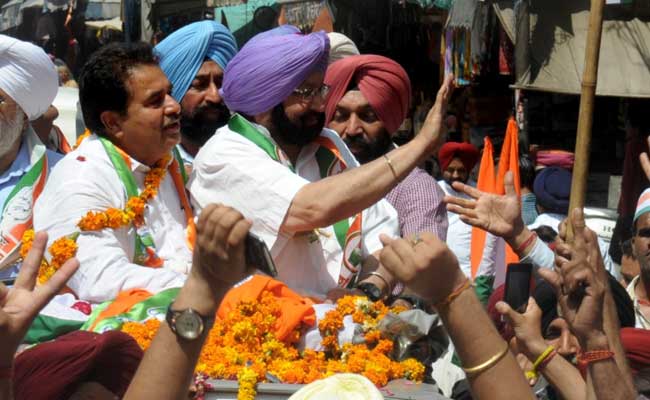
Punjab votes on Saturday. The legislature in one of India's richest states has 117 seats, which means that to form the government, a party needs 59 seats. The contest is between the incumbent Akali Dal-BJP coalition, Arvind Kejriwal's Aam Admi Party or AAP, and the Congress. Allowing for the usual health warnings on election forecasts, the Congress is likely to win the state.
Here is your 10-point guide to this story:
Who has the best chance of winning? 45% for Congress, AAP with 35%, and the Akali-BJP team has 20%. Based on a variety of polls done recently in Punjab, this is the probability estimate of each party taking top prize.
Though he has been the undisputed face of the Congress' campaign, the party went public only last week with Captain Amarinder Singh, 74, as its presumptive Chief Minister. A big acquisition for the party was former cricketer Navjot Singh Sidhu, who is a crowd magnet. "Sidhu aa gaya, Sidhu chaa gaya," say those attending his rallies, in their version of "he came, he saw, he conquered."
Sikh voters lean towards the Akalis, while Hindus support the Congress, but it's not a major divide. See this graphic for more.
In fact, the big chasm in Punjab is not religious but between its rural and urban stretches. Rural Sikhs largely back the Akalis, while urban Sikhs prefer the Congress.
Rural Punjab has 85 seats. Urban areas have 32. In the general election in 2014, the Congress won the equivalent of 19 urban seats, while the Akalis won the equivalent of 39 rural seats.
AAP did not exist when Punjab re-elected the Akalis in 2012. Just two years later, it won 4 of 13 parliamentary seats, a windfall for a fiercely ambitious but inexperienced player.
The precocious political novice headed by Arvind Kejriwal, who has campaigned exhaustively for AAP in Punjab, has bulked up in the state by swiping nearly equally from the Congress and the Akalis. For more details, see this.
AAP's popularity, powered by cadre amassed very quickly, surges among areas with a concentrated Sikh population and in rural areas.
AAP's support is especially concentrated in East Malwa, which elects 36 members. The other three regions have 27 representatives each.
For every 100 votes that AAP gets, it takes 35 from Congress, 45 from Akalis, and 20 from Mayawati's BSP and other parties.

